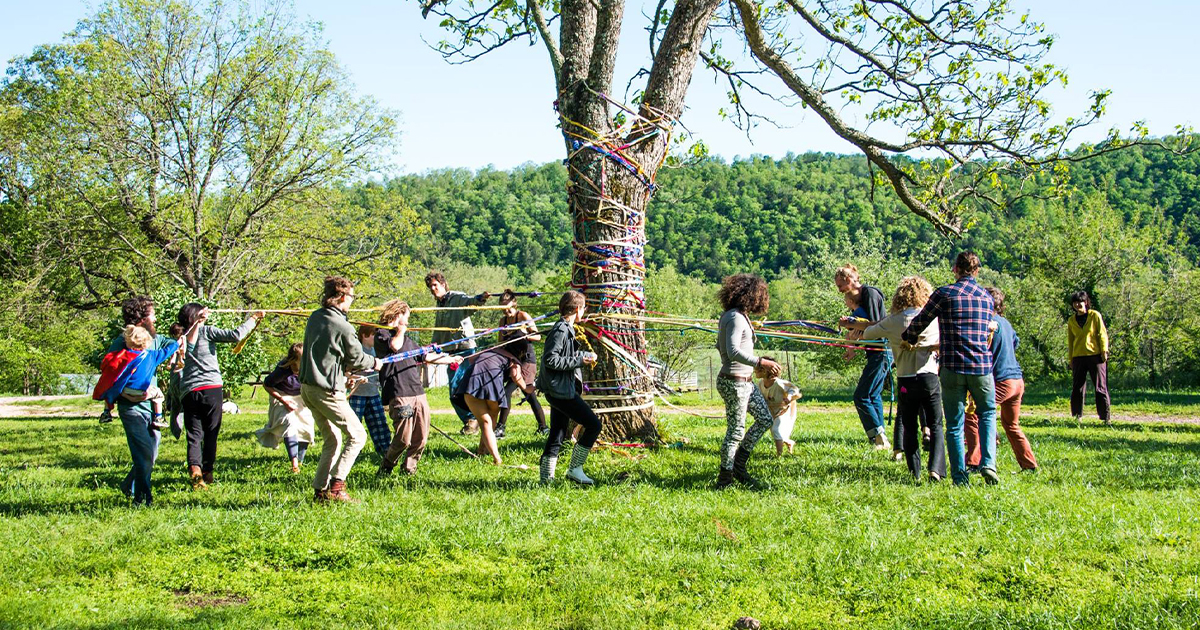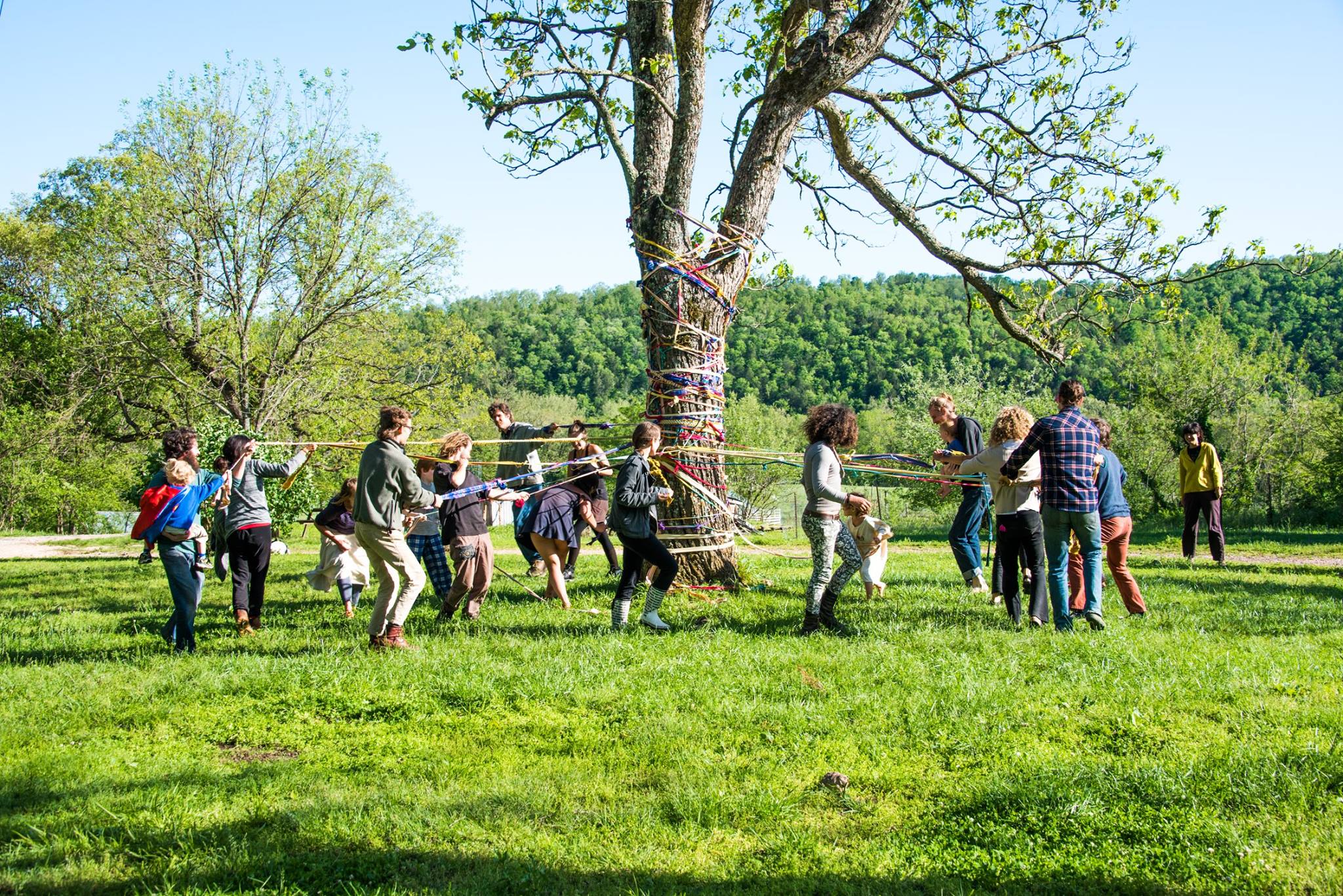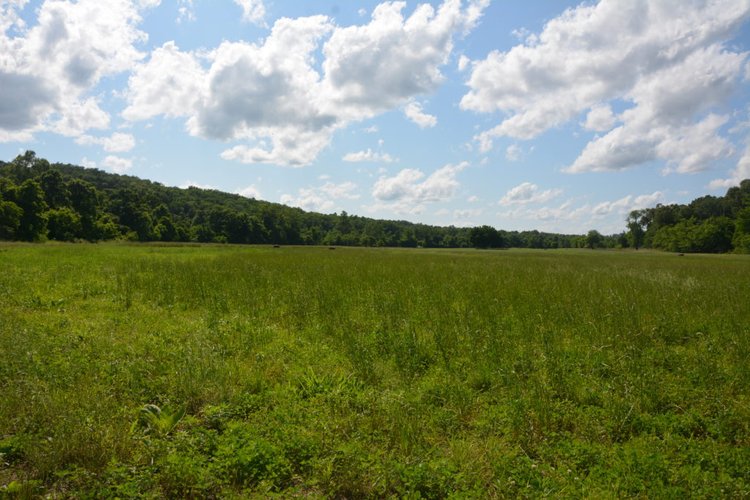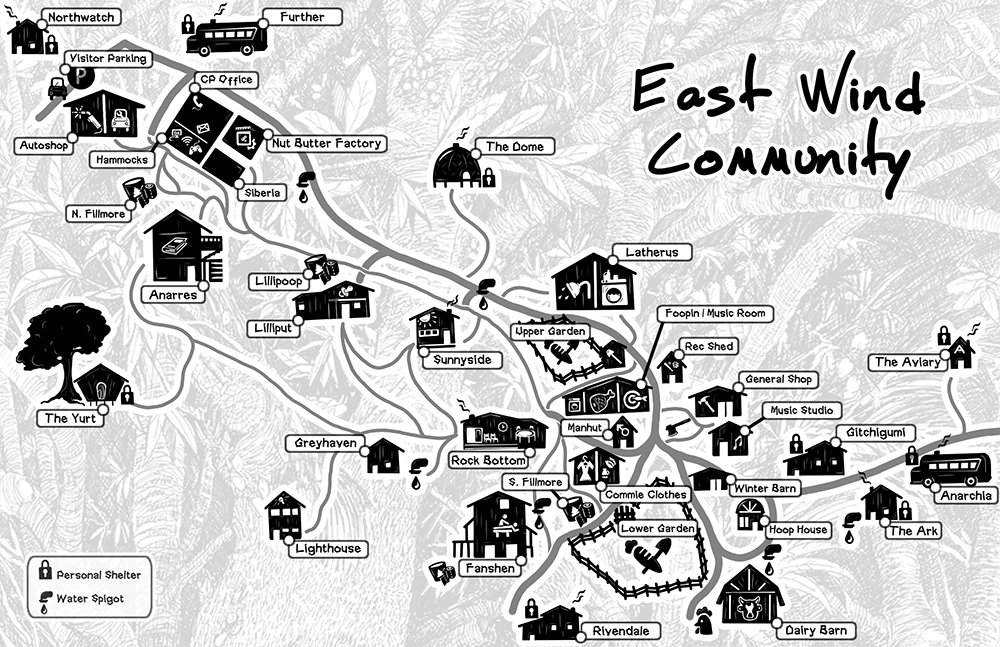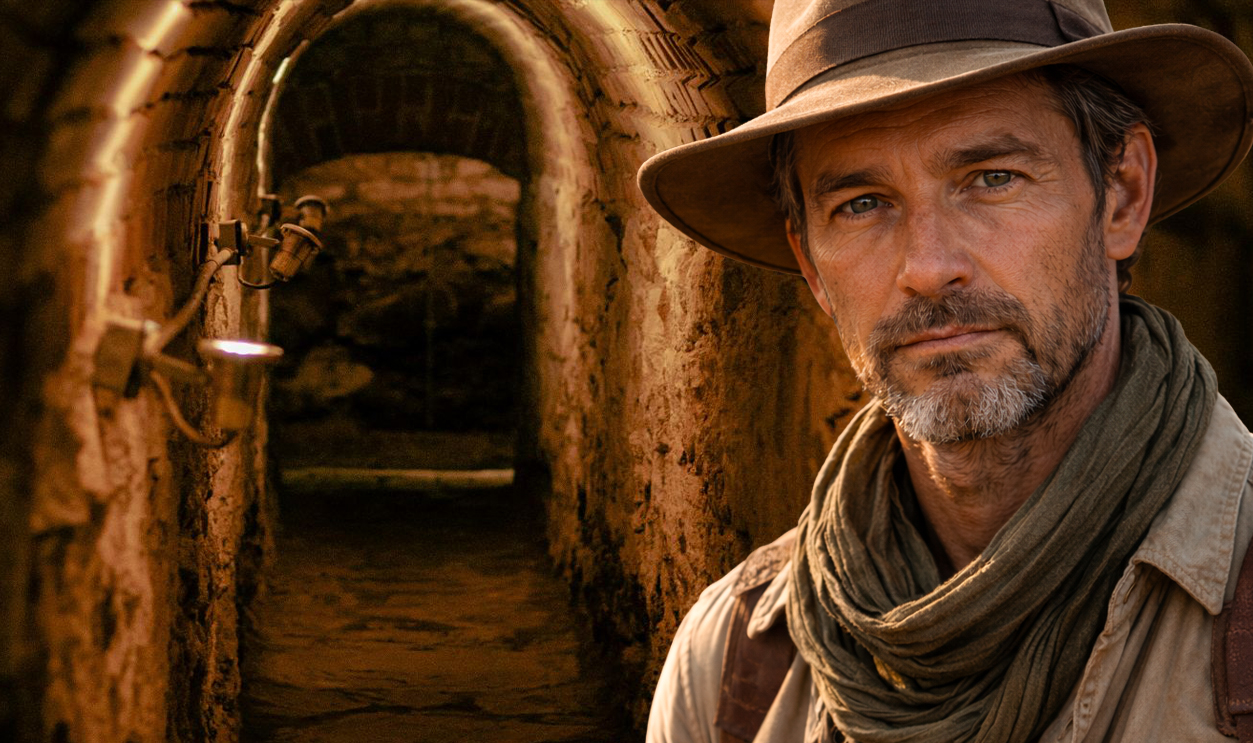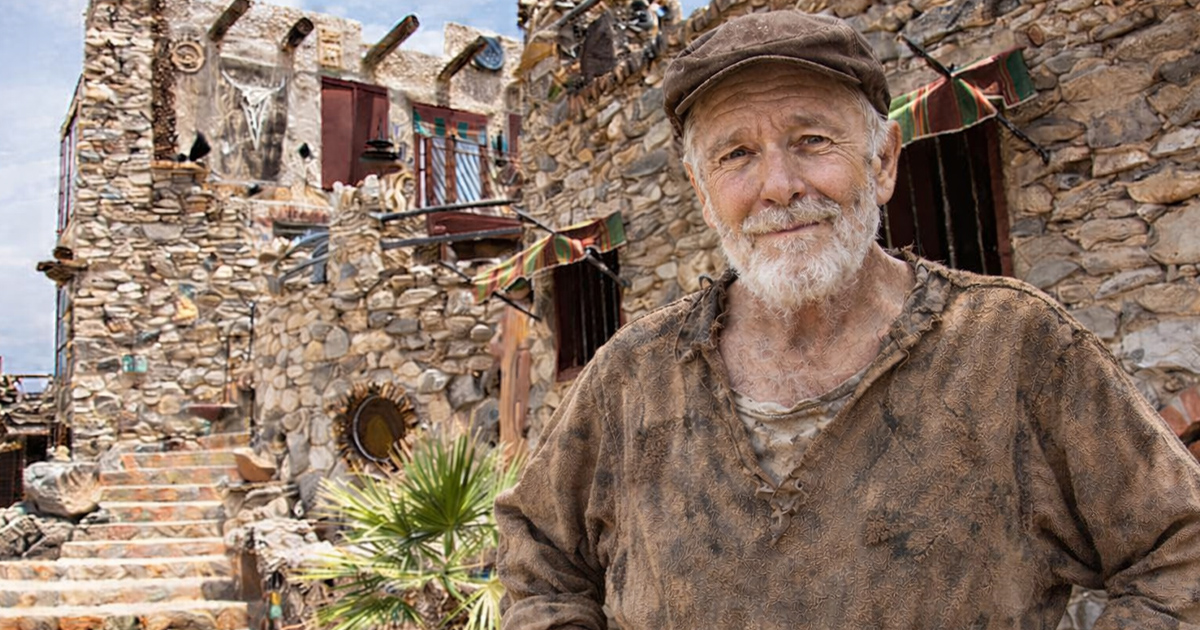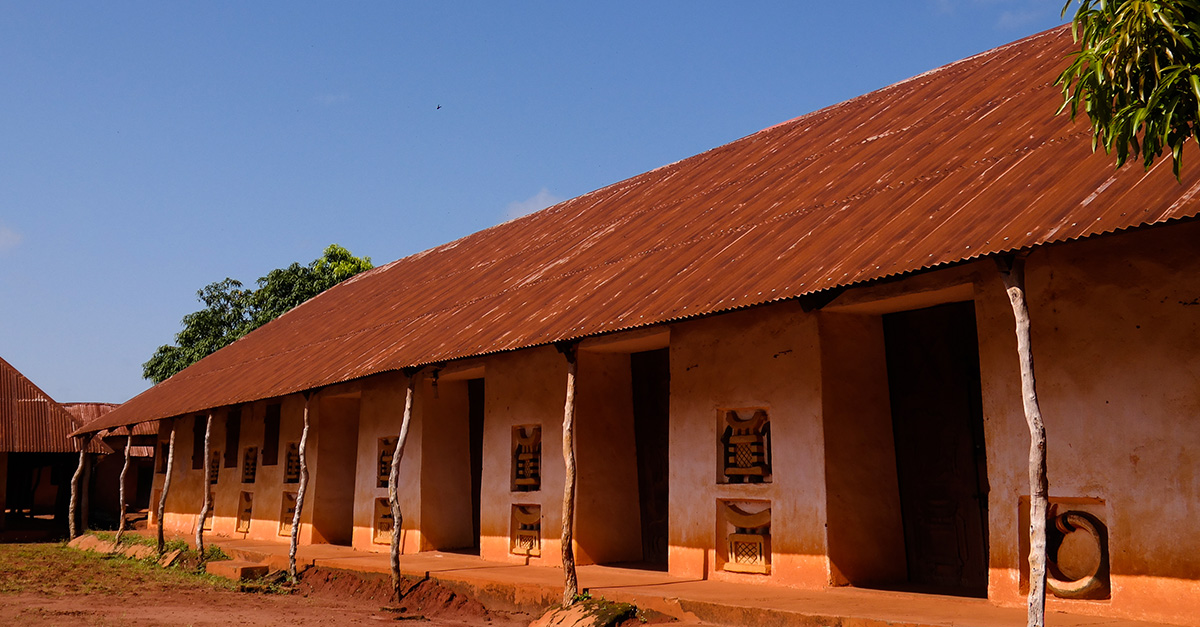Communal Living
In the heart of the Ozarks lies 1,200 acres of land belonging to a nearly self-sufficient intentional community where members live communally, with shared assets, no leaders and no flush toilets.
The land is shared by people who don’t fit in with mainstream society—or prefer not to. These are the details of their sustainable utopia.
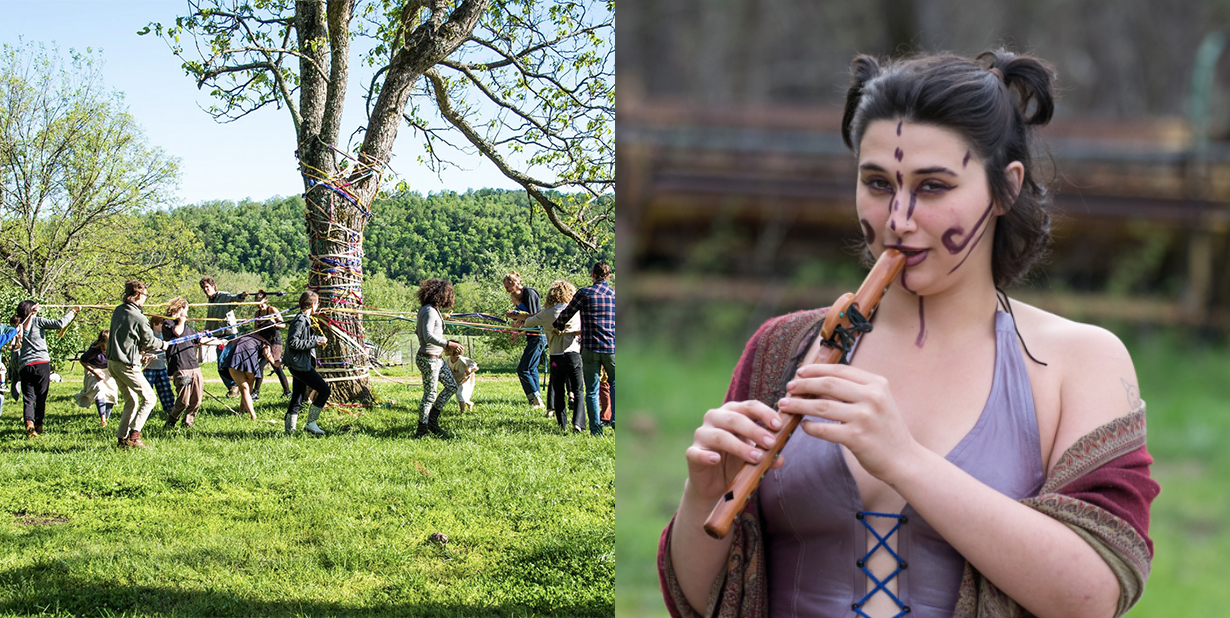
What is an Intentional Community
An intentional community is a voluntary community which is designed to have a high degree of social cohesion and teamwork.
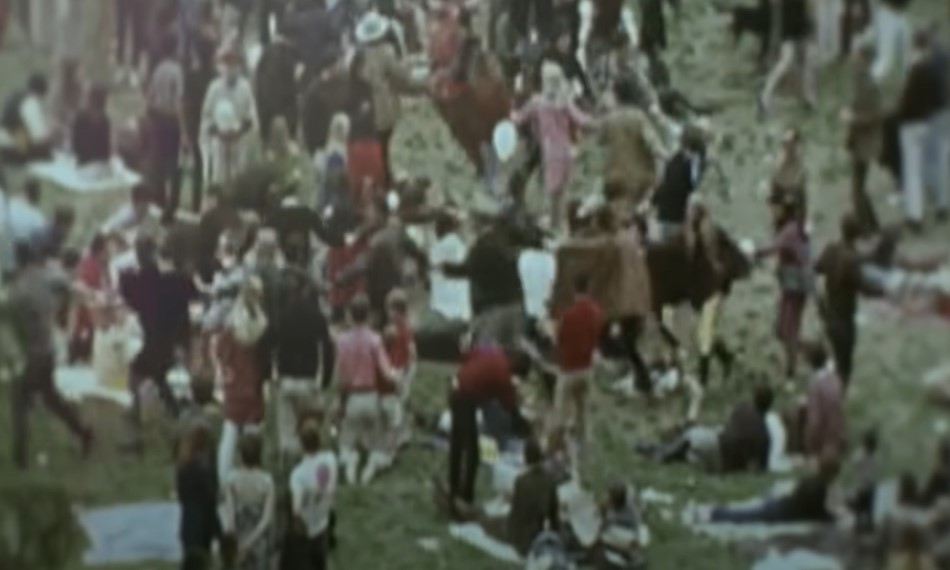 TRT World, Route 66 Documentary - East Wind Community (2017)
TRT World, Route 66 Documentary - East Wind Community (2017)
Advantages of an Intentional Community
Being a member of a group of like-minded people who share the same set of values as you allow you to enjoy a sense of wholeness, connectedness and integrity that is not easily found in mainstream society.
 TRT World, Route 66 Documentary - East Wind Community (2017)
TRT World, Route 66 Documentary - East Wind Community (2017)
What is East Wind?
East Wind is a community of people living and working together. They hold their land, labor, and resources in common.
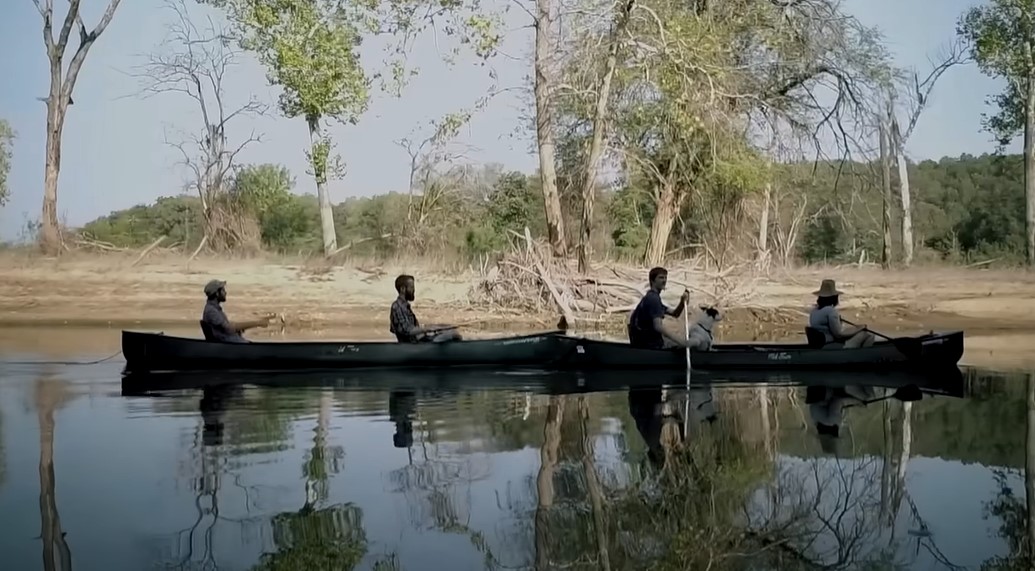 TRT World, Route 66 Documentary - East Wind Community (2017)
TRT World, Route 66 Documentary - East Wind Community (2017)
East Wind Values
East Wind puts great value on cooperation, nonviolence, and direct democracy.
Their website states, “Ultimately, we seek to maintain and continually improve this decades strong, living example of what can happen when people see that working together for a common purpose makes life easier and more fulfilling.”
 TRT World, Route 66 Documentary - East Wind Community (2017)
TRT World, Route 66 Documentary - East Wind Community (2017)
East Wind Community Culture
East Wind’s culture is entirely dependent upon the current membership. They are a very diverse group with many different interests.
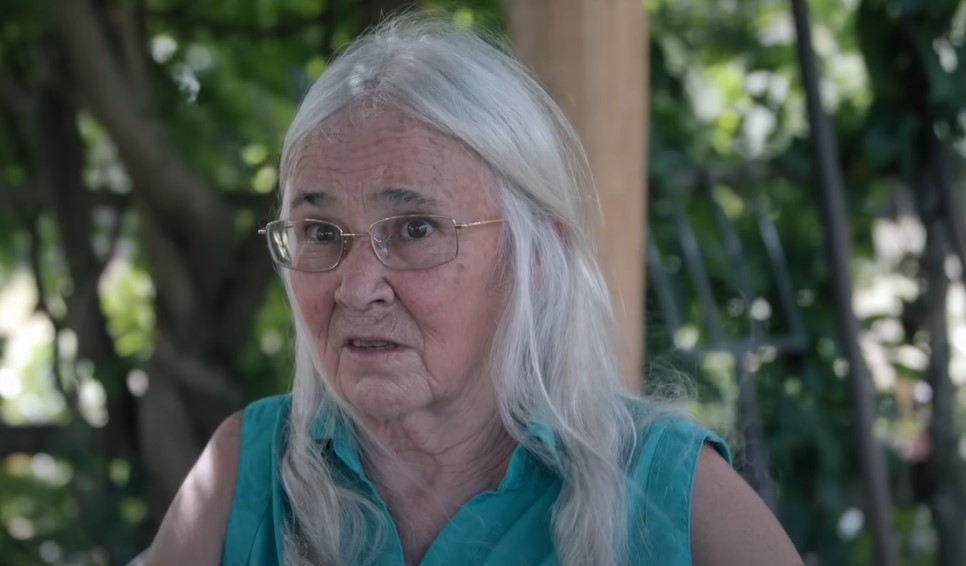 TRT World, Route 66 Documentary - East Wind Community (2017)
TRT World, Route 66 Documentary - East Wind Community (2017)
An Intentional Community
East Wind members have no bosses. They set their own rules and actively engage in self-governance. The great level of autonomy allows members to live spontaneously, as well as assume the responsibilities they desire to take on.
 TRT World, Route 66 Documentary - East Wind Community (2017)
TRT World, Route 66 Documentary - East Wind Community (2017)
East Wind Diversity
Their website says, “We are extroverts and introverts, bluegrass lovers and dubstep fanatics, bookworms and TV series marathoners. There is no one ‘type’ of person that dominates at East Wind.”
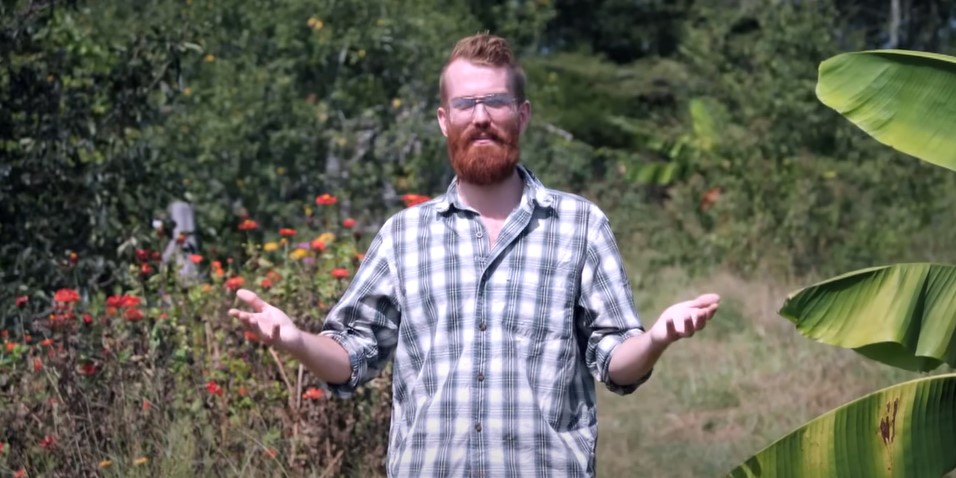 TRT World, Route 66 Documentary - East Wind Community (2017)
TRT World, Route 66 Documentary - East Wind Community (2017)
Size
There are 73 members plus guests and visitors living at East Wind at any given time. In 2017, half of their adult population was age 30 and under.
The Land
East Wind is located in the Heart of the beautiful Ozarks (rural Southern Missouri), and encompasses nearly 1,200 acres. Over 800 acres of land has been set aside as a type of nature preserve, in which they refer to as, “the Woods.”
The remaining 345 acres holds their infrastructure and pastures.
The Layout of the Land
The land includes creeks, hiking trails, dirt roads, ravines, caves, jumping cliffs, swimming holes, rock beaches, and a variety of plant, tree and animal life.
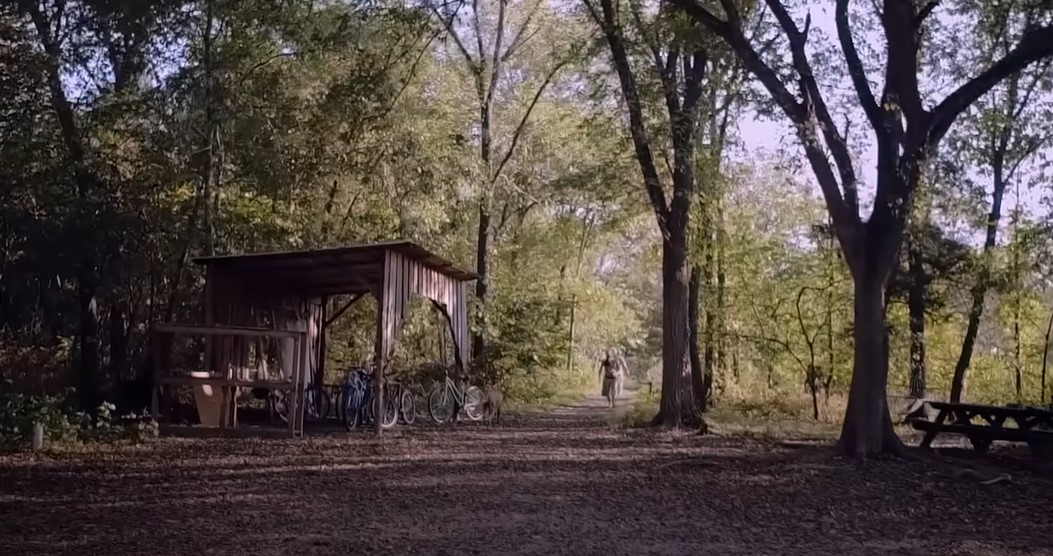 TRT World, Route 66 Documentary - East Wind Community (2017)
TRT World, Route 66 Documentary - East Wind Community (2017)
Plants
Various wild edible and medicinal plants are found on the land, which include chickweed, cleavers, dandelion, passionflower, chicory, chives, mullein, nettles, burdock, self-heal, plantain, and yarrow, among many others.
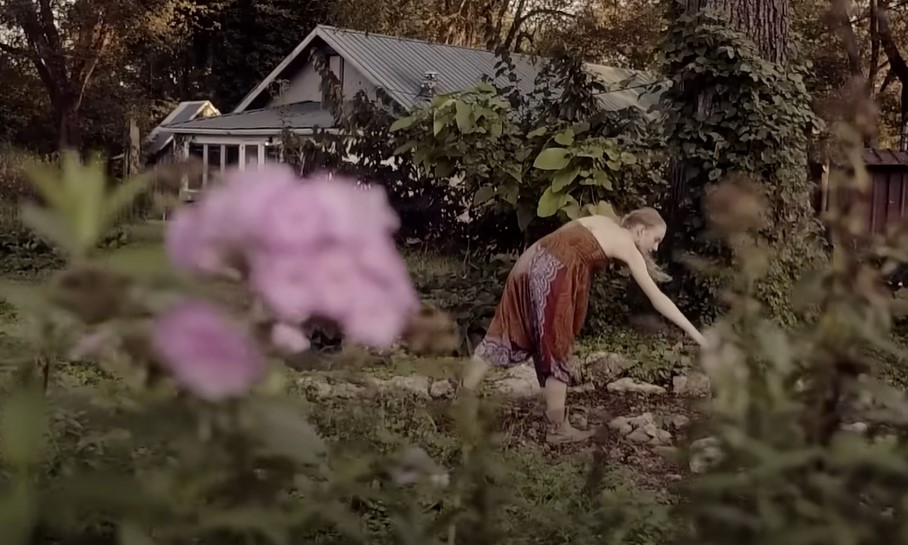 TRT World, Route 66 Documentary - East Wind Community (2017)
TRT World, Route 66 Documentary - East Wind Community (2017)
Animals
The woods are full of various wild animals, which include deer, squirrels, coyotes, armadillos, raccoons, groundhogs, skunks, snakes, lizards, frogs, turtles, and many types of fish.
 TRT World, Route 66 Documentary - East Wind Community (2017)
TRT World, Route 66 Documentary - East Wind Community (2017)
Shared Spaces: Rock Bottom
An area known as Rock Bottom, which was built in 1976, houses the main kitchen and dining facilities. This is where community meals are prepared. It includes three refrigerators plus a walk-in fridge.
This area is also where the community message boards are set up, and a commonly used hangout spot.
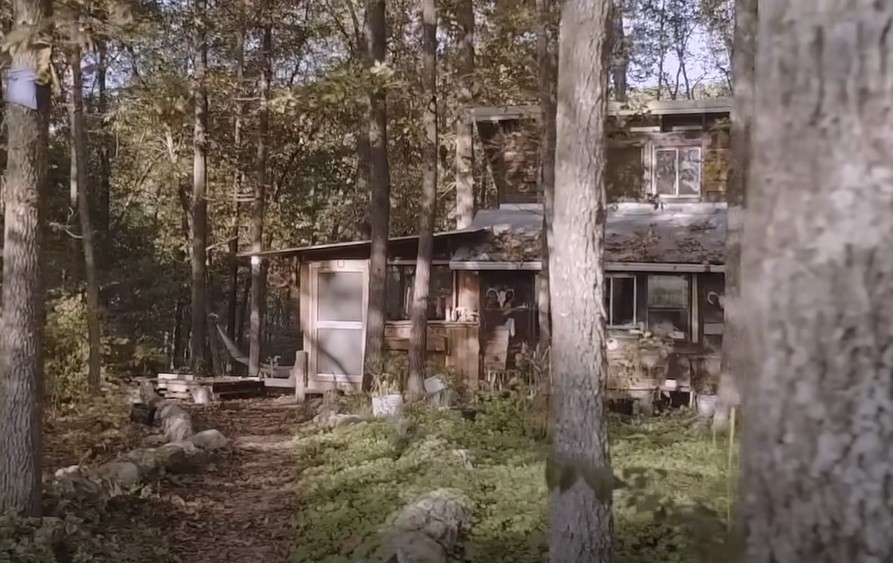 TRT World, Route 66 Documentary - East Wind Community (2017)
TRT World, Route 66 Documentary - East Wind Community (2017)
Shared Spaces: Hammocks
Hammocks is a large open room in the Enterprise building—which also houses offices, computers, and shipping space.
This is where members previously created handmade hammocks for sale, but it currently used as a movie theater and games room—which includes a projector screen, pool table, air hockey table, ping pong table, and a foosball table.
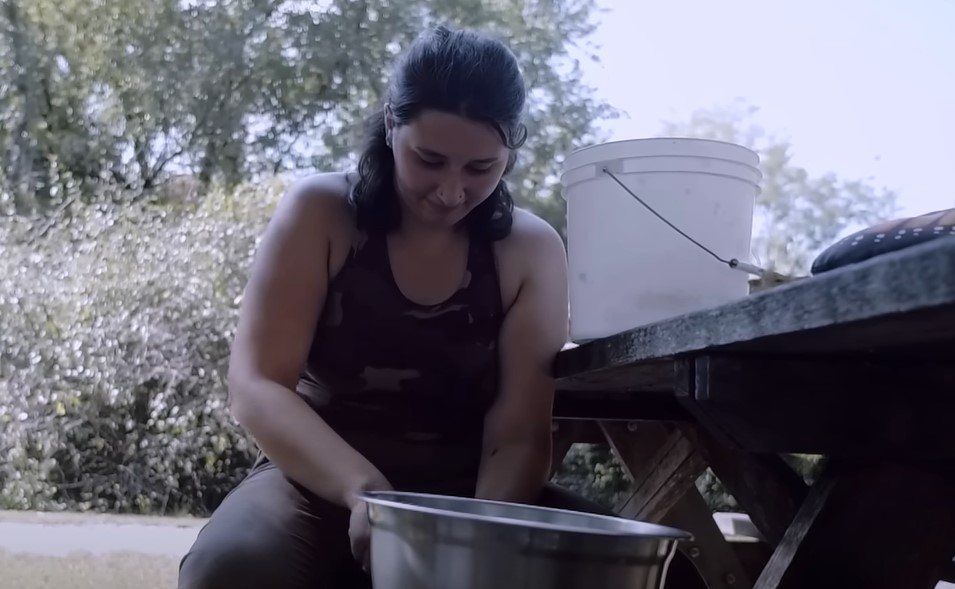 TRT World, Route 66 Documentary - East Wind Community (2017)
TRT World, Route 66 Documentary - East Wind Community (2017)
Shared Spaces: Others
Other shared spaces include buildings with an auto/metal/general shop, a music studio, a fitness center, a laundry room, and a food processing house.
The Shower House
The shower house is a small building with a sink and two showers in a shared stall. It has two hot water tanks.
There is also two other buildings that have private bathrooms with their own shower, and there is an outside shower available.
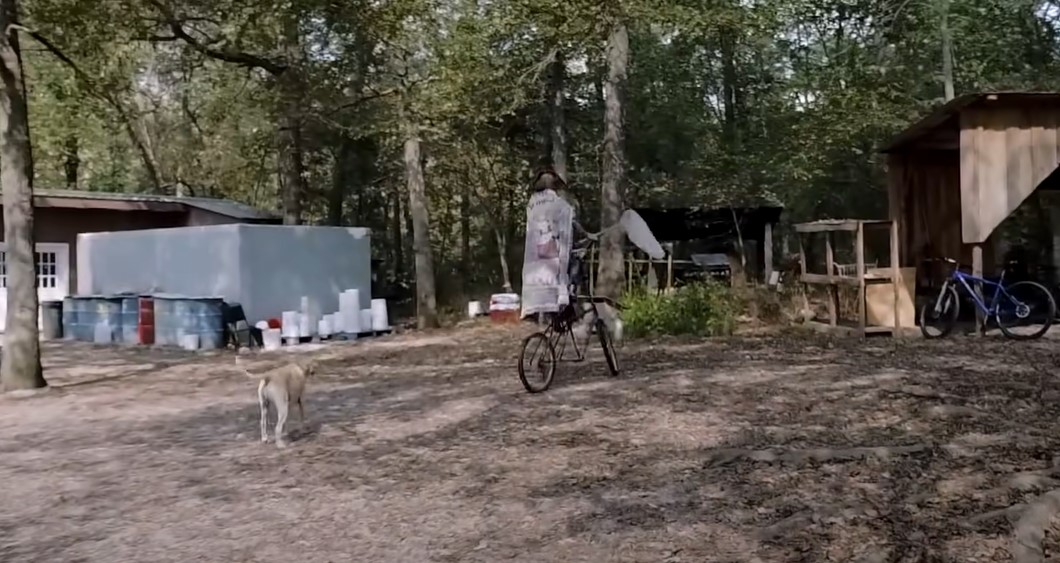 TRT World, Route 66 Documentary - East Wind Community (2017)
TRT World, Route 66 Documentary - East Wind Community (2017)
Residences
There are currently four main residences and nine personal shelters for East Wind members to reside. Fanshen and Annares are the two largest dorms.
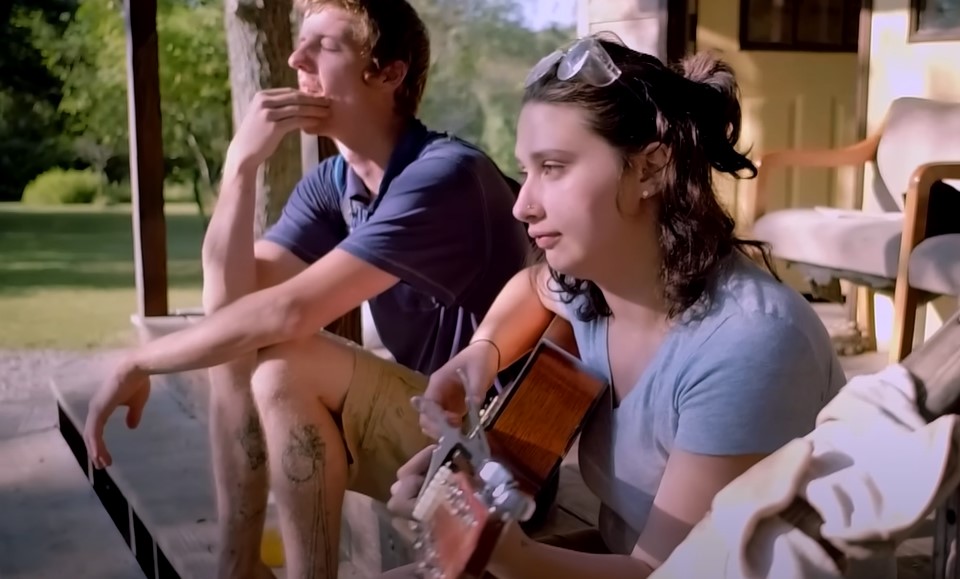 TRT World, Route 66 Documentary - East Wind Community (2017)
TRT World, Route 66 Documentary - East Wind Community (2017)
Fanshen Dorm
Fanshen was built in 1975 and has 21 rooms, equipped with heat and hydro. There is a private bathroom and shower available.
 TRT World, Route 66 Documentary - East Wind Community (2017)
TRT World, Route 66 Documentary - East Wind Community (2017)
Annares Dorm
Annares has 10 rooms, also equipped with heat and hydro. This building also includes a private bathroom, but also a shared living area with a kitchen, living room, and an extensive community library.
 TRT World, Route 66 Documentary - East Wind Community (2017)
TRT World, Route 66 Documentary - East Wind Community (2017)
Lilliput Dorm
Lilliput is a resident that was made for children and families. It has 12 rooms, and includes a kitchen, living room, play space, and a home school room.
It also includes a backyard with a garden, sandbox, kids’ pool, and a small playground. There are two other playgrounds elsewhere in the community.
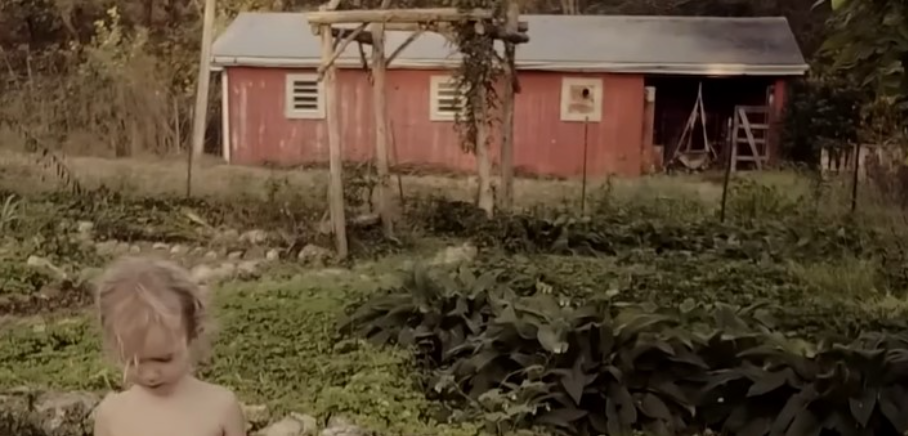 TRT World, Route 66 Documentary - East Wind Community (2017)
TRT World, Route 66 Documentary - East Wind Community (2017)
Personal Shelters
There are nine personal shelters that include five singe residents, and four double shelters. These are small places located in the woods surrounding the community. Most are simple living and sleeping spaces with outhouses, and some have basic kitchen set ups.
Some personal shelters have hydro, while others use solar panels or are completely without hydro, and all use wood stoves for heat.
 TRT World, Route 66 Documentary - East Wind Community (2017)
TRT World, Route 66 Documentary - East Wind Community (2017)
The Guesthouse
There is a small guesthouse called “The Lighthouse” that is available for guests, or as a retreat for members. It can be signed out by members on a first come, first serve basis.
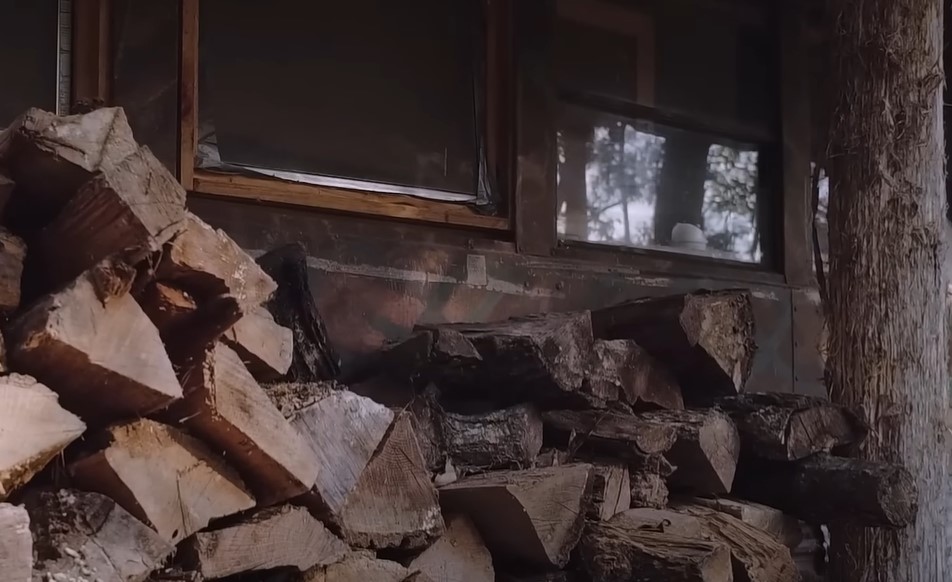 TRT World, Route 66 Documentary - East Wind Community (2017)
TRT World, Route 66 Documentary - East Wind Community (2017)
Comptoil
The biggest difference between East Wind and traditional living is that East Wind does not have flush toilets—aside from one regulated bathroom facility for the Nut Butter factory, which is required by law.
They exclusively do their #2 business in fillmores and outhouses.
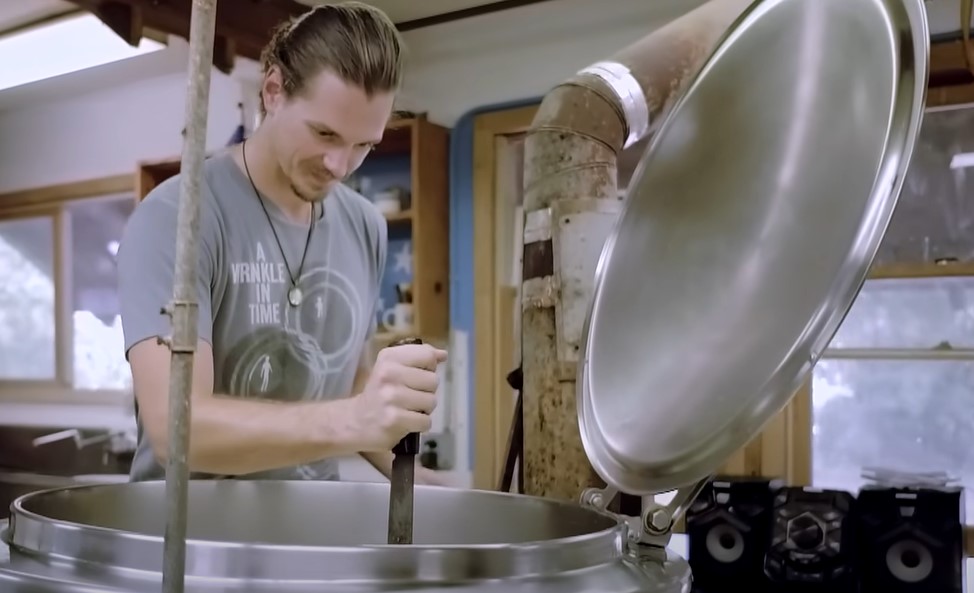 TRT World, Route 66 Documentary - East Wind Community (2017)
TRT World, Route 66 Documentary - East Wind Community (2017)
Fillmores
A fillmore is their name for a restroom. It was named after Millard Fillmore, the last US president to not have a flush toilet in the whitehouse.
All fillmores are equipped with a sink, hot and cold water, soap and toilet paper.
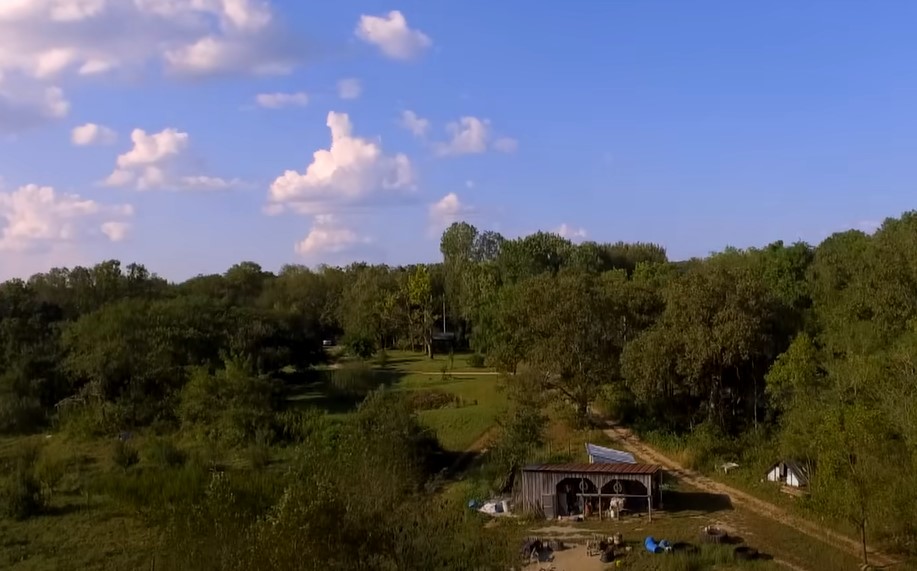 TRT World, Route 66 Documentary - East Wind Community (2017)
TRT World, Route 66 Documentary - East Wind Community (2017)
The Waste
Instead of polluting potable water with their waste, they drop it into dry buckets filled with peanut skins—which is a sustainable waste product from their land, that also controls smell and aids in composting.
 TRT World, Route 66 Documentary - East Wind Community (2017)
TRT World, Route 66 Documentary - East Wind Community (2017)
Composting the Waste
The waste is collected each day and taken to a far away composting site that changes every 3 years. They are very careful in processing their waste in a way that maintains their health and their land.
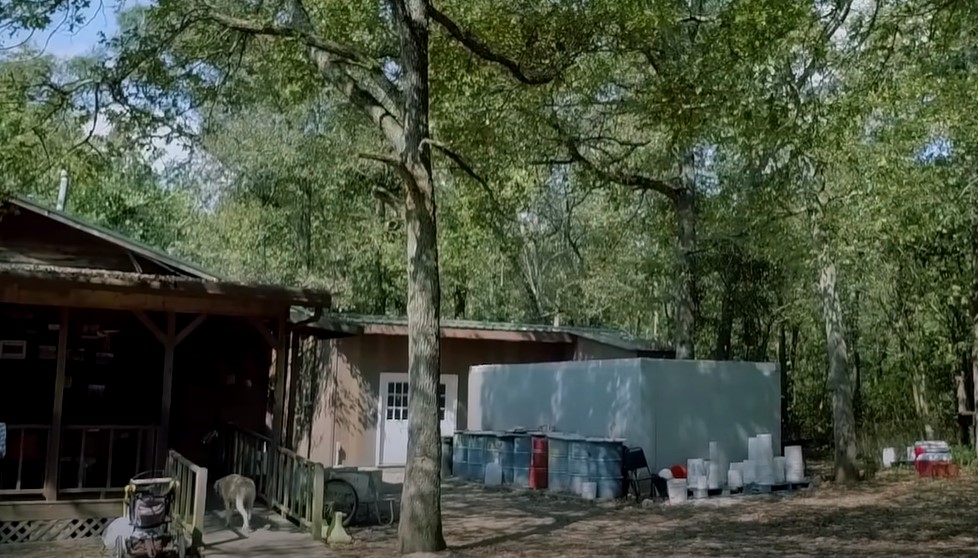 TRT World, Route 66 Documentary - East Wind Community (2017)
TRT World, Route 66 Documentary - East Wind Community (2017)
Housekeeping
House labor is both a shared responsibility, as well as tasks that members can sign up for as their contribution to the community.
Because the people living at East Wind are seeking the communal living lifestyle, most are considerable of others and a clean home is maintained fairly easily.
 TRT World, Route 66 Documentary - East Wind Community (2017)
TRT World, Route 66 Documentary - East Wind Community (2017)
Resources
East Wind holds their land, income, labor, and other resources in common. The community assumes responsibility for the needs of its members, from food and shelter to medical care and entertainment.
 TRT World, Route 66 Documentary - East Wind Community (2017)
TRT World, Route 66 Documentary - East Wind Community (2017)
Personal Possessions
Everyone at East Wind is free to have their own personal possessions such as clothing, media and electronic devices.
 TRT World, Route 66 Documentary - East Wind Community (2017)
TRT World, Route 66 Documentary - East Wind Community (2017)
Self-Governance
East Wind has a set of bylaws that set forth their purposes, direction, ideology, define the rights and obligations of membership, and state the guarantees made by the community to its members.
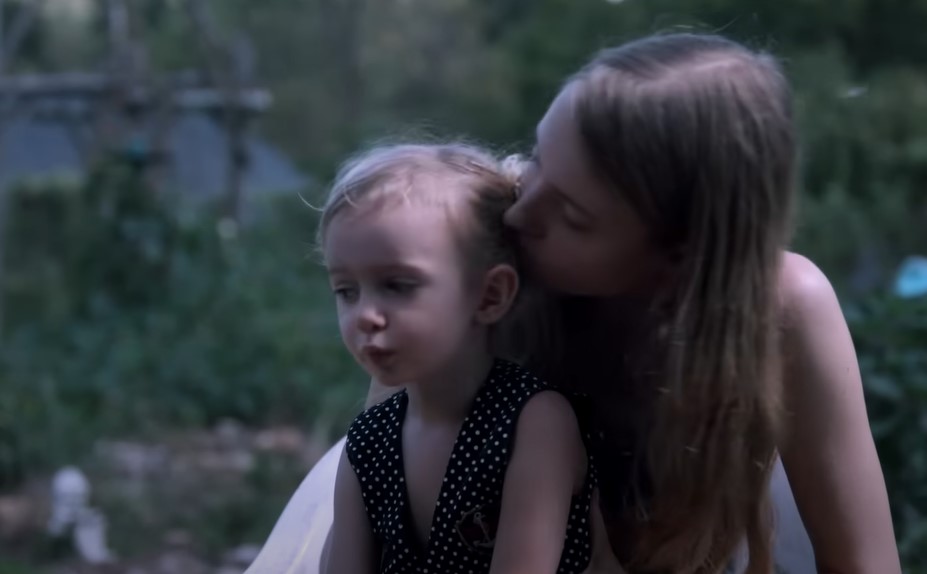 TRT World, Route 66 Documentary - East Wind Community (2017)
TRT World, Route 66 Documentary - East Wind Community (2017)
Spending Money
Provisional and full members receive an equal “Discretionary Fund” each month that members are free to spend as they please. This number is around $150 or higher.
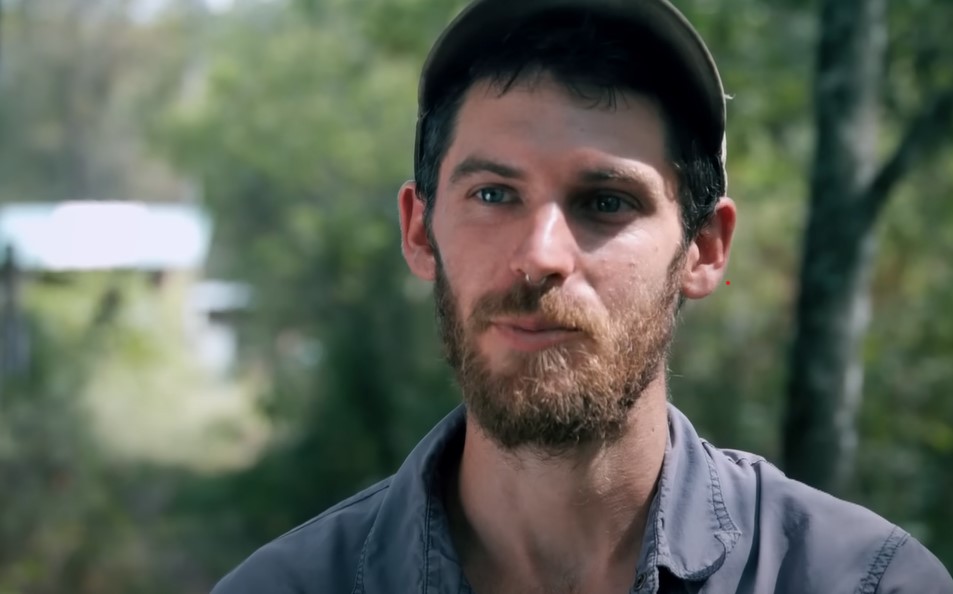 TRT World, Route 66 Documentary - East Wind Community (2017)
TRT World, Route 66 Documentary - East Wind Community (2017)
Cooperation
Each member of East Wind has an understanding that each of them is responsible for themselves as well as the group. They are a part of a system that rewards cooperation rather than competition.
 TRT World, Route 66 Documentary - East Wind Community (2017)
TRT World, Route 66 Documentary - East Wind Community (2017)
Work Ethic
It is said that there is only one thing that is most harshly judged within the community, and that is work ethic. They believe they have a very easy life at East Wind compared to the industrialized world.
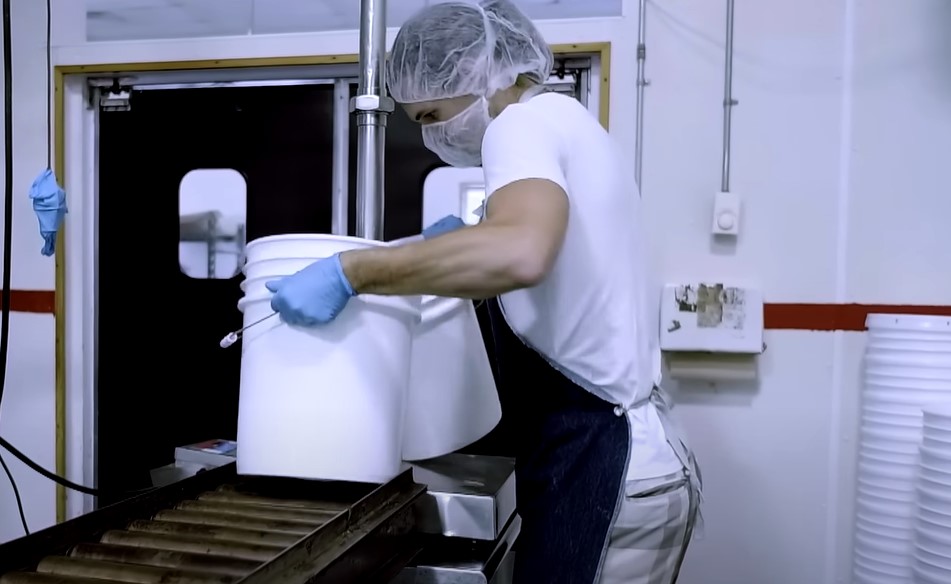 TRT World, Route 66 Documentary - East Wind Community (2017)
TRT World, Route 66 Documentary - East Wind Community (2017)
Jobs At East Wind
Members can choose from an endless number of activities to do throughout the day. They are not required to sit at a desk for 8 hours, instead, each member is allowed to choose what they feel comfortable doing—and most are able to find a niche where they feel appreciated.
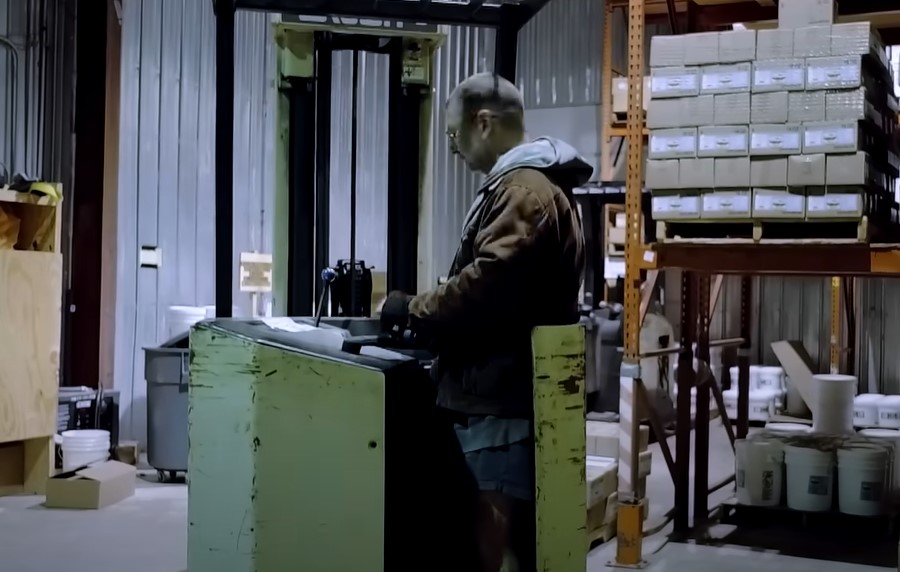 TRT World, Route 66 Documentary - East Wind Community (2017)
TRT World, Route 66 Documentary - East Wind Community (2017)
Examples
Examples of jobs include gardening, farming, construction, business management, food processing, cooking, coaching (exercise, education, etc.) and so much more. Anything that helps run the community is a job that needs to be done by someone.
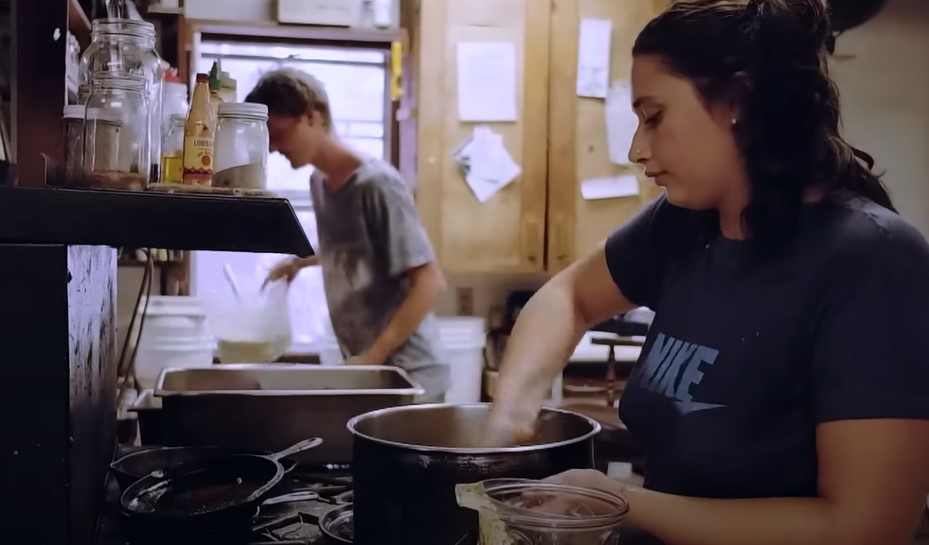 TRT World, Route 66 Documentary - East Wind Community (2017)
TRT World, Route 66 Documentary - East Wind Community (2017)
East Wind Profession
East Wind runs a multi-million-dollar food manufacturing business as their primary profession, selling various forms of food grown and processed on-site, as well as a booming nut butter business and handicrafts, like rope sandals.
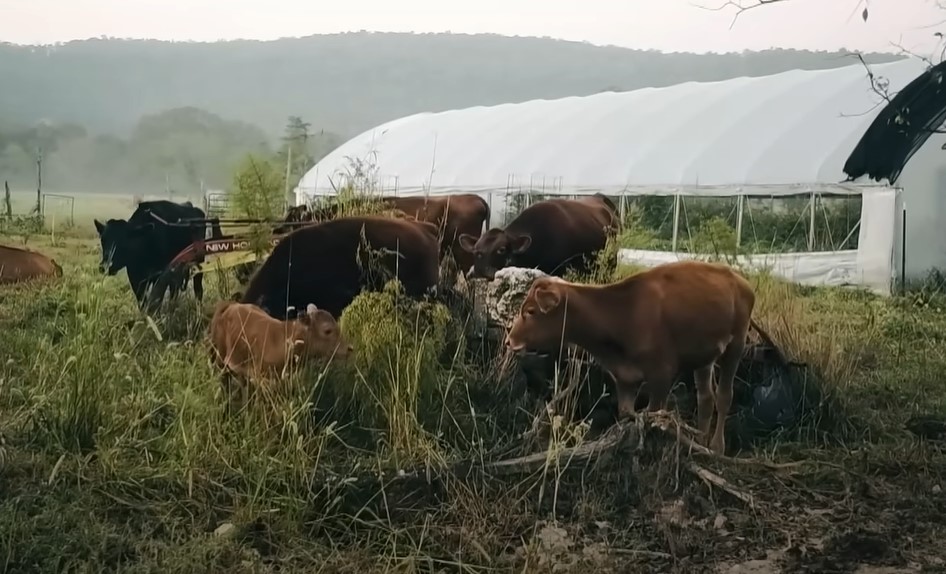 TRT World, Route 66 Documentary - East Wind Community (2017)
TRT World, Route 66 Documentary - East Wind Community (2017)
East Wind Crafts
The East Wind Crafts is the e-commerce-based retail storefront for East Wind, where they sell various Nut Butters and Utopian Rope Sandals that are authentically and sustainably made.
 TRT World, Route 66 Documentary - East Wind Community (2017)
TRT World, Route 66 Documentary - East Wind Community (2017)
The Business
East Wind Nut Butters has been owned and operated by the members of East Wind since 1980. As equal owners, they participate in all aspects of the business. From roasting raw nuts, milling butter, packaging product, shipping and business management, they do it all together, using the skills they have.
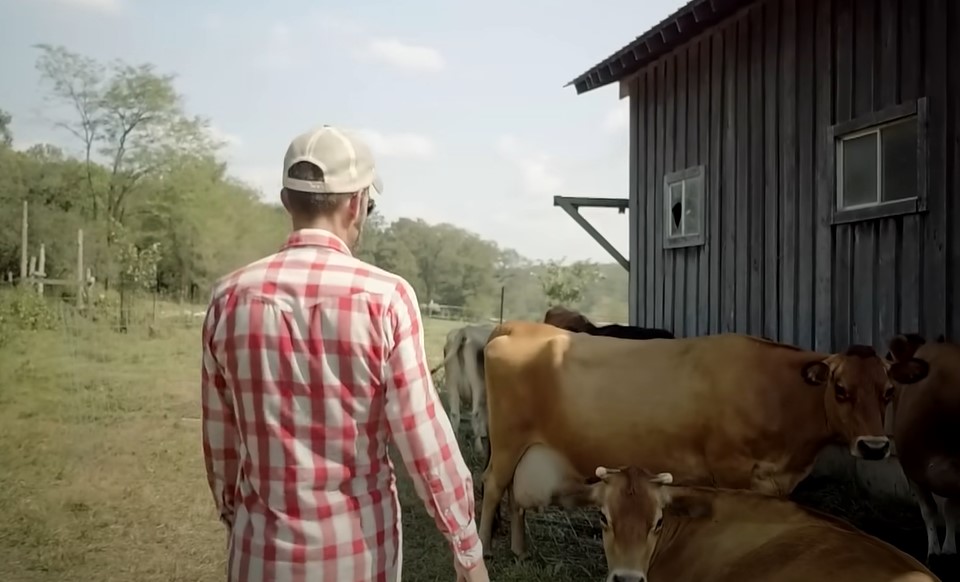 TRT World, Route 66 Documentary - East Wind Community (2017)
TRT World, Route 66 Documentary - East Wind Community (2017)
Construction
East Wind members come from a variety of backgrounds that offer countless skills. The grounds are equipped with shops that include a variety of drills, saws, sanders, planers, and more. They have a tool for every purpose, and many people with the skills and knowledge to use them all.
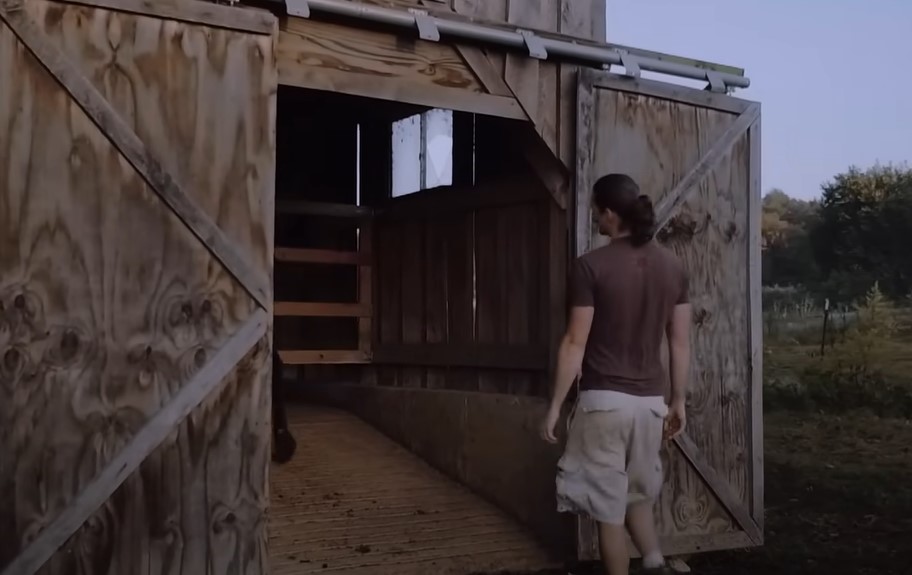 TRT World, Route 66 Documentary - East Wind Community (2017)
TRT World, Route 66 Documentary - East Wind Community (2017)
Nonviolence
At East Wind, nonviolence is priority. They believe that every person has the same right to be there and be free from threat of physical violence. Instances of violence are not tolerated.
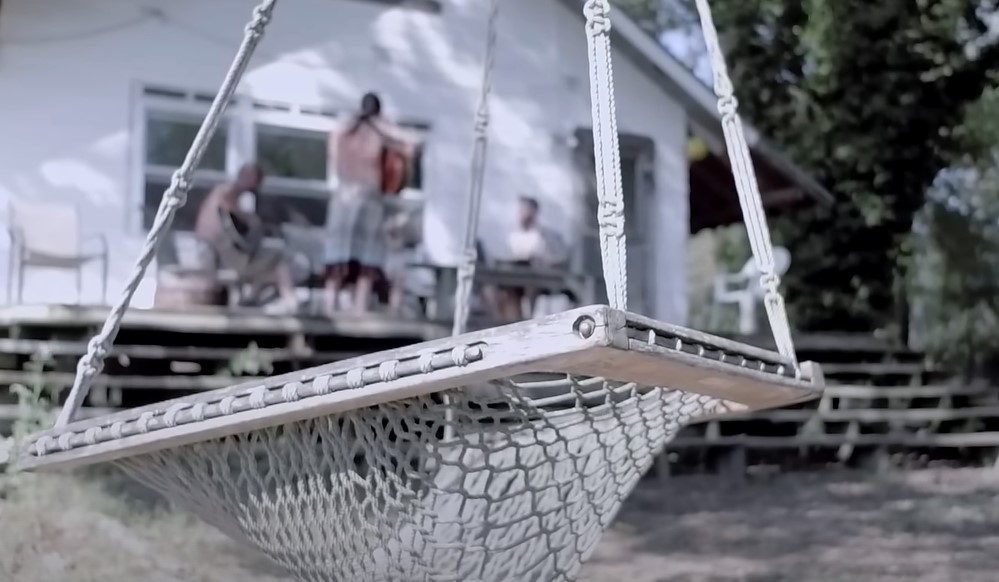 TRT World, Route 66 Documentary - East Wind Community (2017)
TRT World, Route 66 Documentary - East Wind Community (2017)
Sustainable Living
East Wind members consider themselves stewards of the land they use and are working toward creating a more sustainable lifestyle while reducing their impact on the environment.
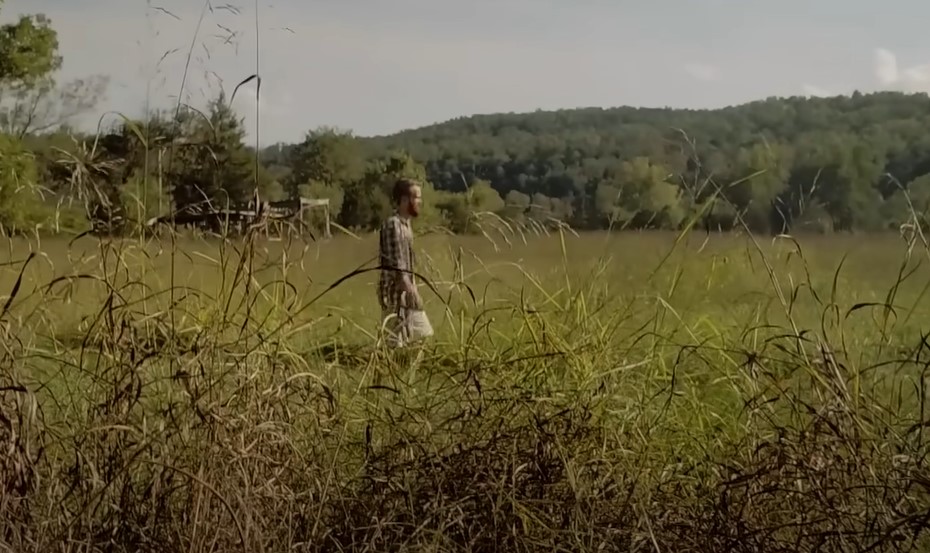 TRT World, Route 66 Documentary - East Wind Community (2017)
TRT World, Route 66 Documentary - East Wind Community (2017)
Utilizing the Environment
A big part of East Wind’s garden, ranch, comp toil, and forestry teams’ goals involve using their natural resources as effectively as possible to allow the ecosystems they co-habitat with to flourish.
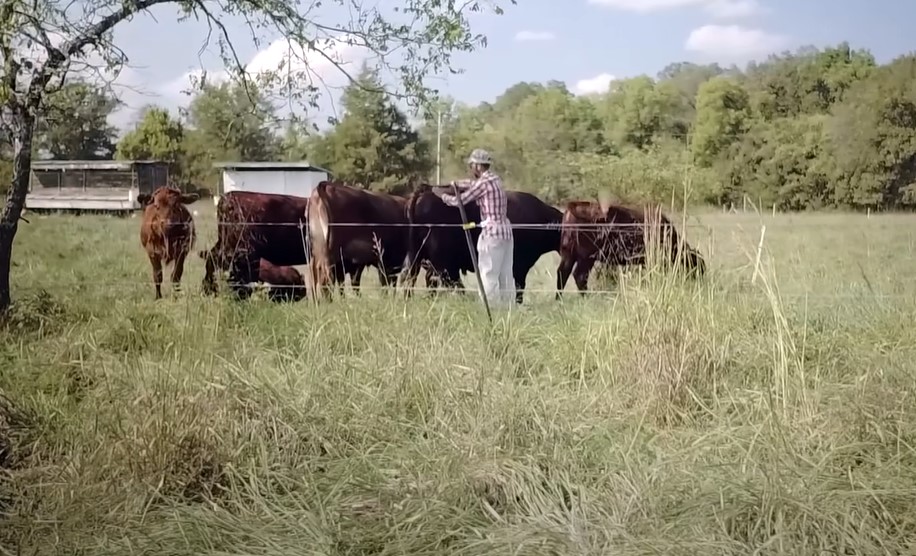 TRT World, Route 66 Documentary - East Wind Community (2017)
TRT World, Route 66 Documentary - East Wind Community (2017)
Garbage & Recycling
East Wind recycles as much as they possibly can, and put a huge emphasis on doing it correctly by removing labels and cleaning products prior to recycling.
Garbage collection is available to them once per week. But members actively work on reducing the amount of garbage they have by using reusable containers and avoiding non-recyclable waste products as much as possible.
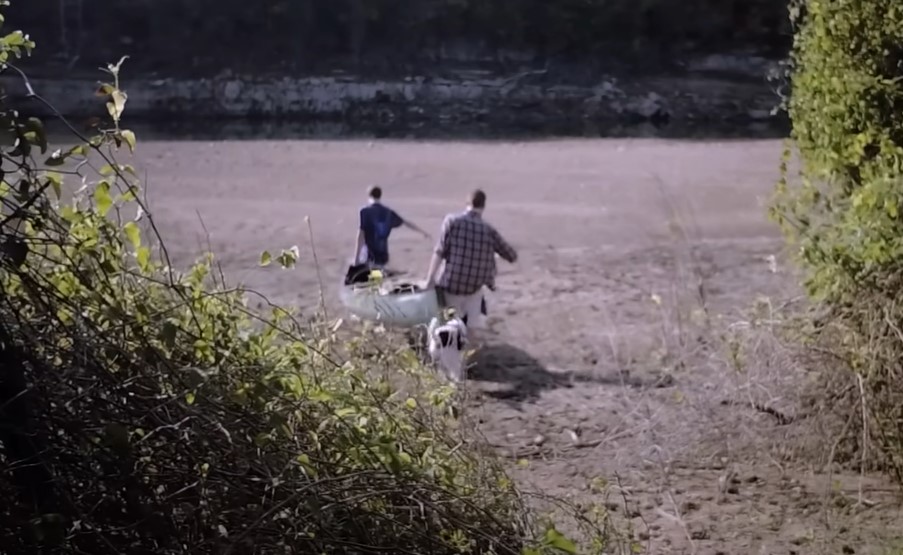 TRT World, Route 66 Documentary - East Wind Community (2017)
TRT World, Route 66 Documentary - East Wind Community (2017)
Decision Making
East Wind uses voting methods—like petitions, proposals, and ballots—to ensure all members have an opportunity to participate in decision making.
Sunday afternoons include meetings to discuss relevant topics.
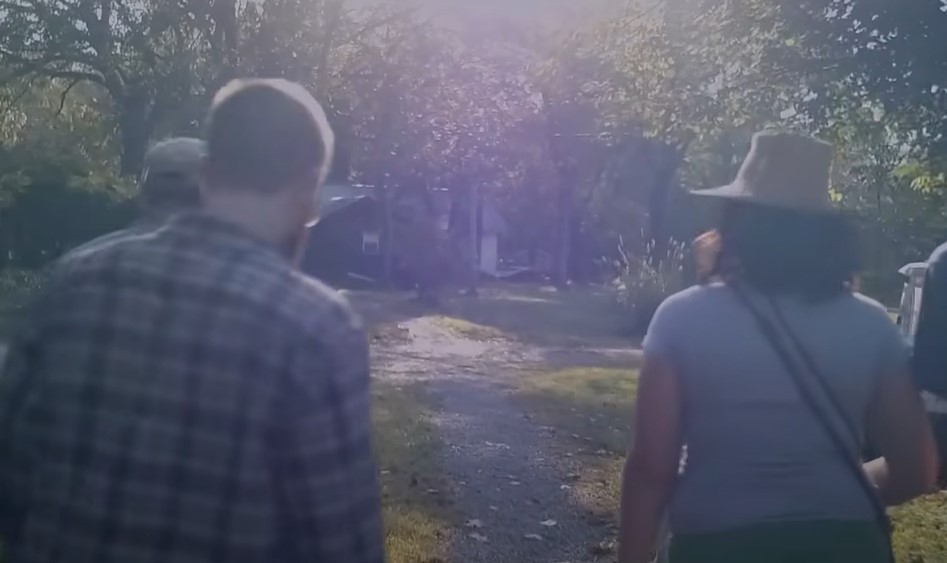 TRT World, Route 66 Documentary - East Wind Community (2017)
TRT World, Route 66 Documentary - East Wind Community (2017)
Food & Nutrition
East Wind’s land and labor provides them with fresh produce, dairy, and meat. They use natural methods to manage their land and animals so that their food is healthy and nutritious. Their animals are treated with love and respect.
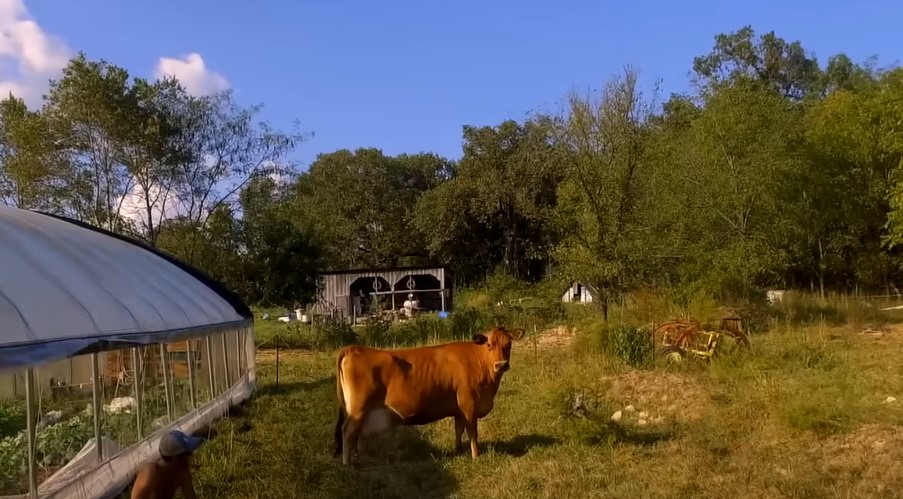 TRT World, Route 66 Documentary - East Wind Community (2017)
TRT World, Route 66 Documentary - East Wind Community (2017)
Dairy
Cheese, yogurt, butter, cow’s milk, pork, beef, chicken, goat, deer, mushrooms, fresh greens and vegetables are all available and prepared on-site by members. The milk is raw and unpasteurized.
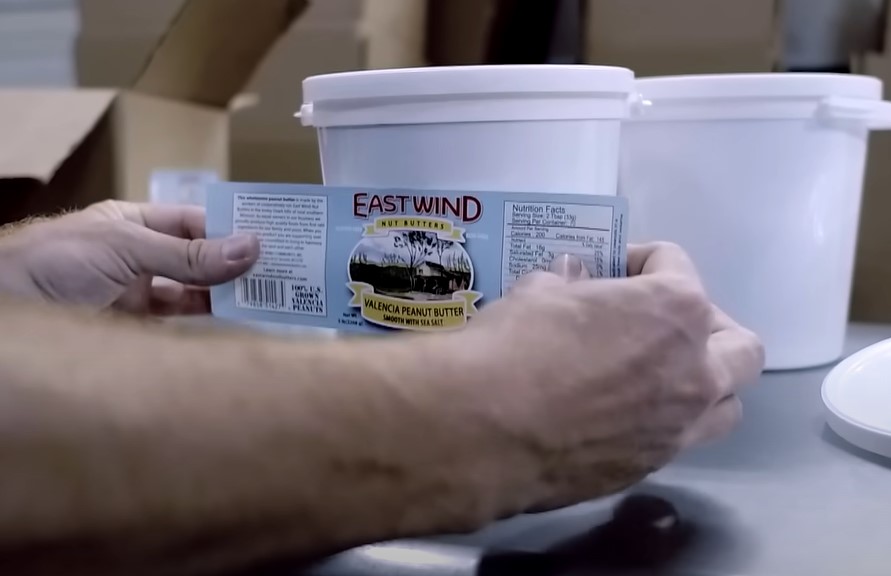 TRT World, Route 66 Documentary - East Wind Community (2017)
TRT World, Route 66 Documentary - East Wind Community (2017)
Purchasing of Food
East Wind is not completely food self-sufficient. They purchase staple grains, cooking oils, and other food that members wish to enjoy. Though the majority of their diet comes from their own land.
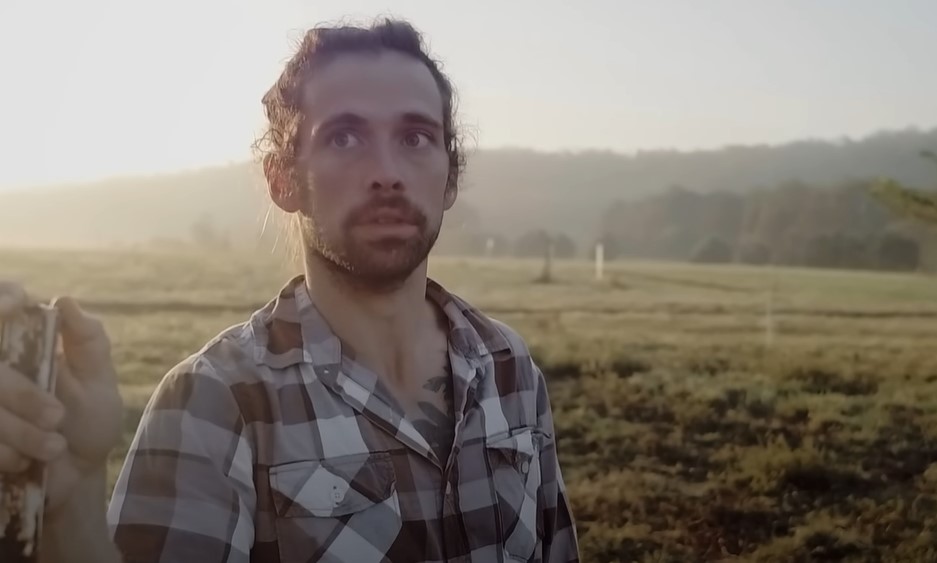 TRT World, Route 66 Documentary - East Wind Community (2017)
TRT World, Route 66 Documentary - East Wind Community (2017)
Preservation
East Wind prepares and processes many seasonal foods for preservation, allowing them to enjoy the fruits of their labor all year round, and stock pile for future use.
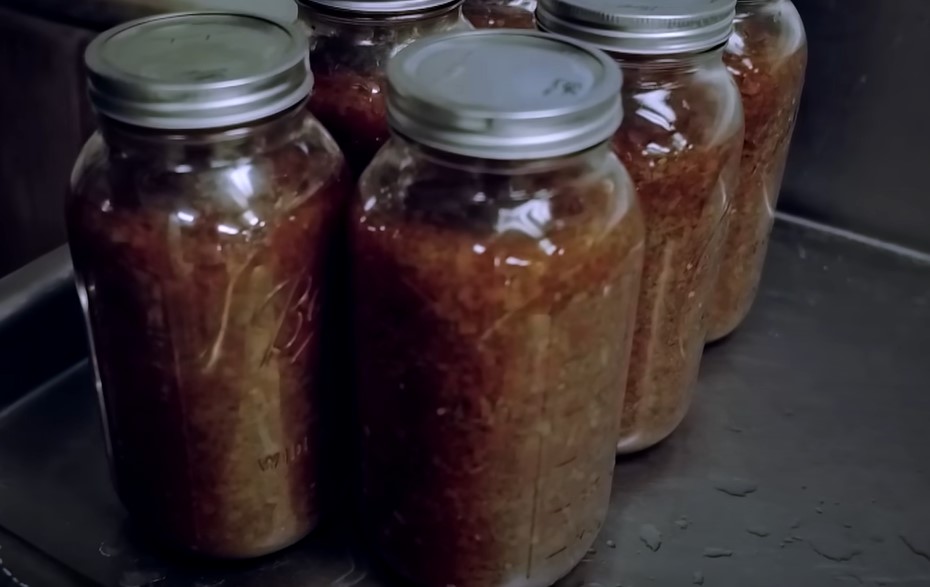 TRT World, Route 66 Documentary - East Wind Community (2017)
TRT World, Route 66 Documentary - East Wind Community (2017)
Meal Preparation: Dinners
Every evening a community dinner is set out in buffet style for everyone to enjoy. Meal variety includes American, Italian, Mexican, Indian, Korean, Japanese, or Mediterranean—depending on who cooks that night.
Members are free to cook and eat their own meals as well.
 TRT World, Route 66 Documentary - East Wind Community (2017)
TRT World, Route 66 Documentary - East Wind Community (2017)
Recreational Activities
Drinking and smoking is allowed, and many do so, however excessive use is discouraged. Any misuse of substances that becomes an ongoing problem is not tolerated.
They also have a brewery in the community where they make their own brew.
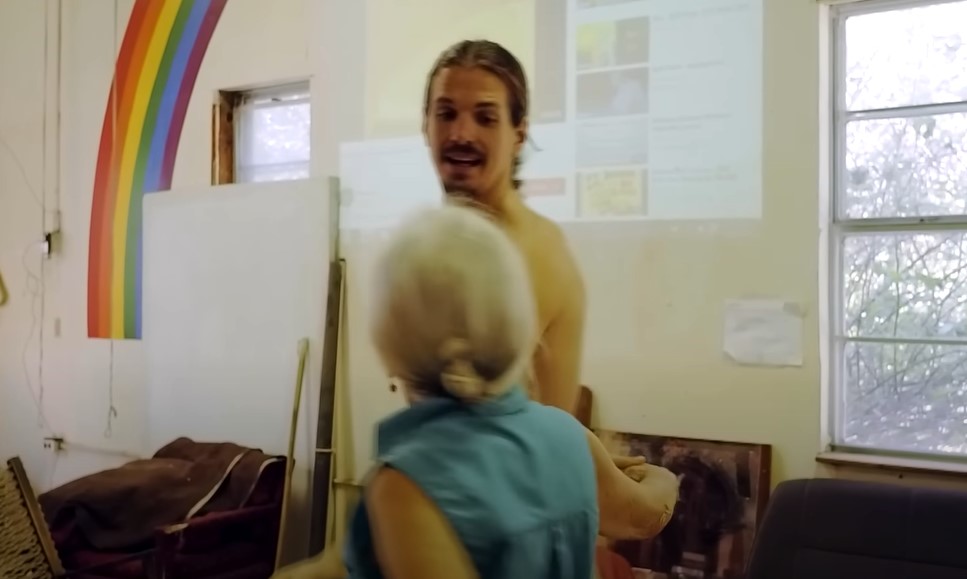 TRT World, Route 66 Documentary - East Wind Community (2017)
TRT World, Route 66 Documentary - East Wind Community (2017)
Fun
The community has a variety of social scenes that include campfires, poker nights, swimming and canoeing adventures, yoga classes, weekly jam nights in the music studio, and monthly holiday parties.
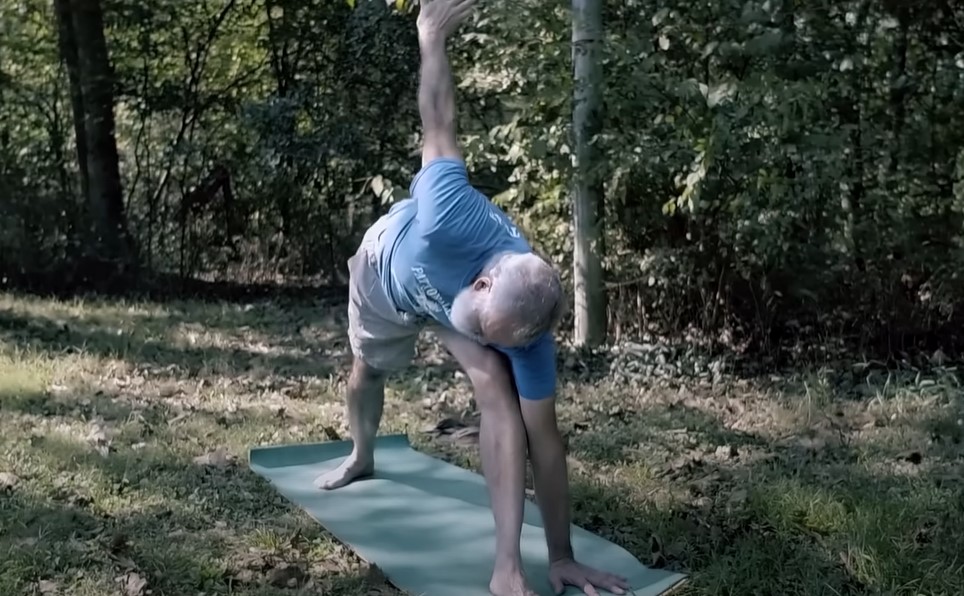 TRT World, Route 66 Documentary - East Wind Community (2017)
TRT World, Route 66 Documentary - East Wind Community (2017)
Shared Vehicles
East Wind members share a fleet of community vehicles, which members are able to sign out for personal, group, and community-related trips.
The vehicles are maintained in their community auto-shop by members with mechanical and auto skills.
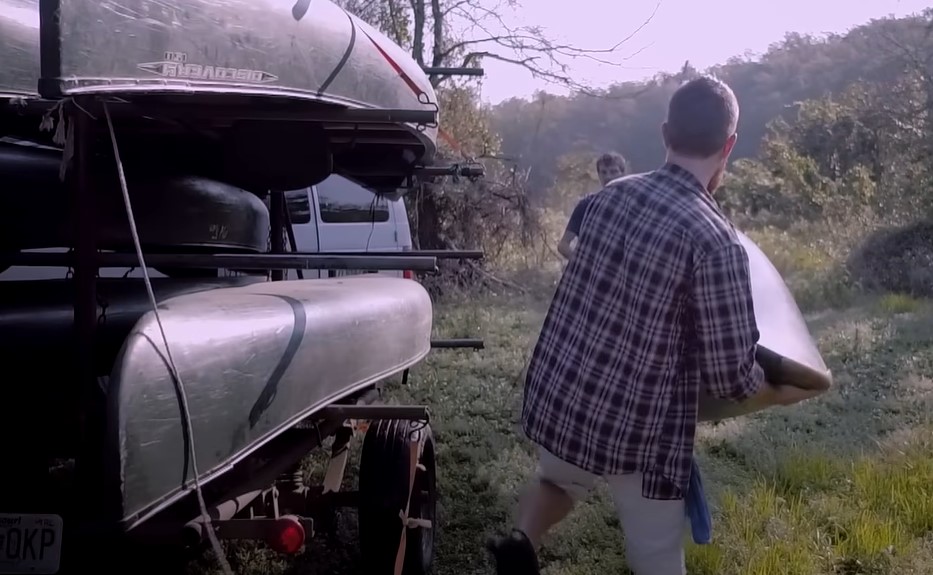 TRT World, Route 66 Documentary - East Wind Community (2017)
TRT World, Route 66 Documentary - East Wind Community (2017)
Visiting East Wind
Visitors are welcome and are able to stay for a weekend, or a full three-week period. They encourage visitors to go as a retreat from the busy world, or as a way to settle curiosity of their lifestyle. Some visitors go to see friends and family who live there, and also as potential newcomers.
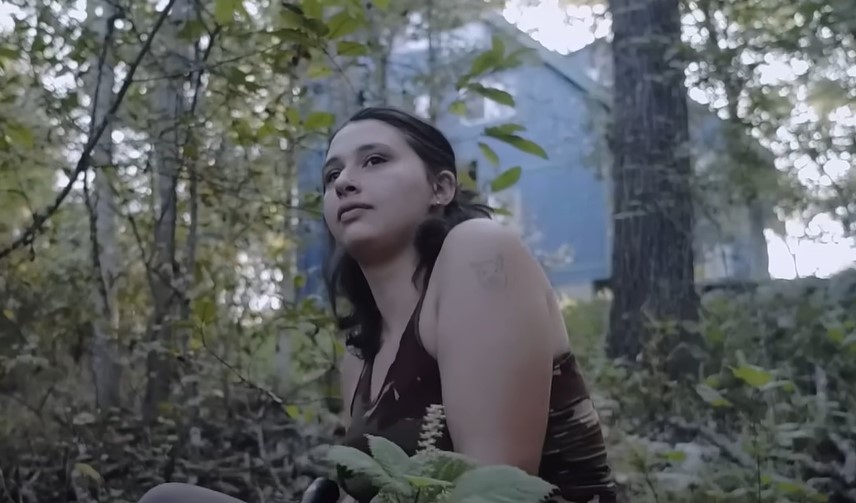 TRT World, Route 66 Documentary - East Wind Community (2017)
TRT World, Route 66 Documentary - East Wind Community (2017)
Visiting Expectations
Visitors who stay for the three-week period are expected to work a full labor quota—35 hours a week, and attend visitor orientations and participate in the community.
Membership is only considered if this participation takes place.
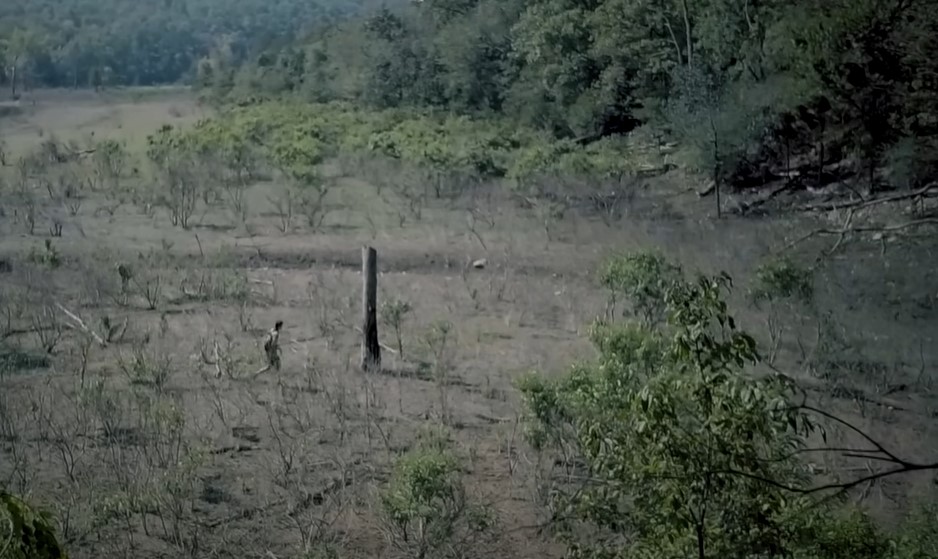 TRT World, Route 66 Documentary - East Wind Community (2017)
TRT World, Route 66 Documentary - East Wind Community (2017)
Visitor Accommodations
Typically, all male visitors room together in their own building called the Man Hut and all female visitors room together in a shared room called Sunburst in the Annares dormitory.
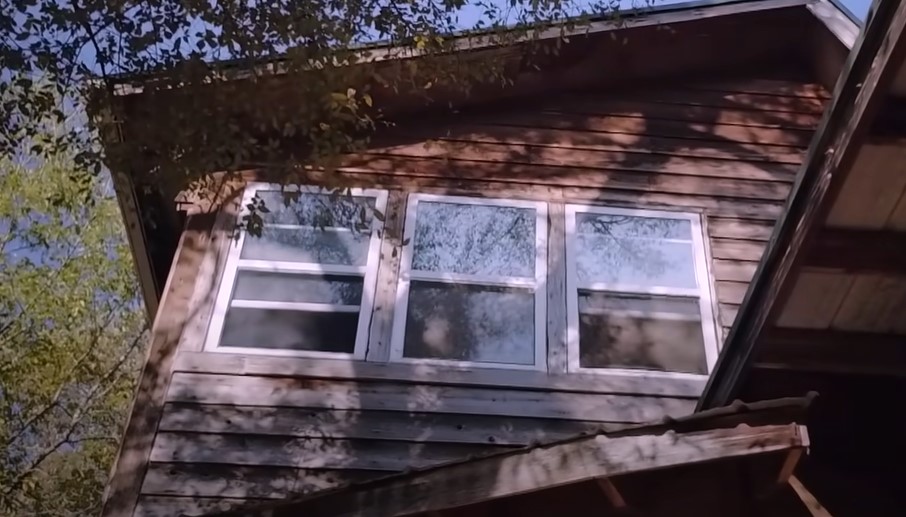 TRT World, Route 66 Documentary - East Wind Community (2017)
TRT World, Route 66 Documentary - East Wind Community (2017)
Membership
Those interested in joining East Wind are to first arrange a visit, as mentioned before. Dropping in unaccounted is not accepted. All visitors and potential members must contact them first to discuss expectations. Further information can be found on their website.
A wait list may be present, depending on current population.
 TRT World, Route 66 Documentary - East Wind Community (2017)
TRT World, Route 66 Documentary - East Wind Community (2017)
Final Thoughts
Living in an intentional community is vastly different from mainstream society, but can be extremely rewarding to those pursuing this type of lifestyle.
This is where people can escape consumer culture, and enjoy a deeper connection to the natural world.
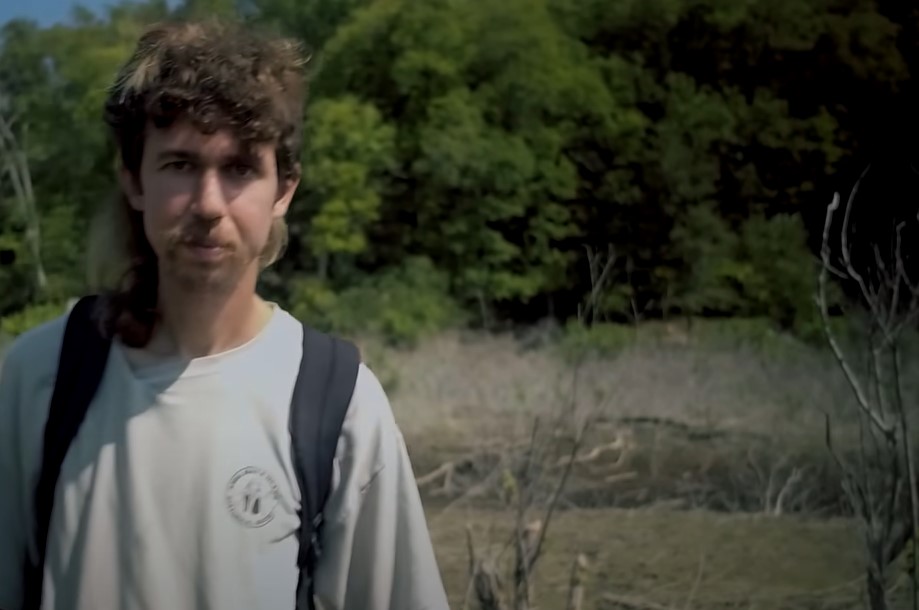 TRT World, Route 66 Documentary - East Wind Community (2017)
TRT World, Route 66 Documentary - East Wind Community (2017)
Source: East Wind Community

